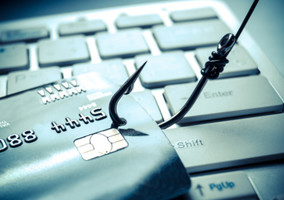More than half of fraud affecting charities is committed by people known to the organisation, according to Charity Commission research published to coincide with Charity Fraud Awareness Week.
Over half of charities (53 per cent) said they knew who committed the fraud they had experienced, according to Preventing Charity Fraud: Insight and Action. It says in cases where the fraudster was identified, 29 per cent of frauds were carried out by paid staff, with trustees and volunteers committing 28 per cent and beneficiaries 13 per cent.
The report says that in spite of this, only 30 per cent of charities have a whistleblowing policy.
The most common type of fraud was mandate or CEO fraud (18 per cent), whereby an individual impersonates someone else in order to request a change to either a direct debit, standing order, bank transfer mandate or payroll bank account details.
Fraud relating to abuse of position was second most common with 12 per cent.
The findings come from the largest survey ever carried out on fraud and cybercrime, with over 3,300 charities responding. The survey was commissioned in partnership with the Fraud Advisory Panel.
Charities rely ‘excessively’ on trust
According to a statement from the Commission, charities are at particular risk of insider fraud because they rely “excessively on goodwill and trust” in individuals.
However, less than 9 per cent of charities have a fraud awareness training programme and almost half do not follow good practice for protection against fraud.
Over a third think their charity is not vulnerable to any of the most common types of charity fraud, with 85 per cent saying they do everything possible to prevent fraud.
‘More is lost than money’
The report says that one in 25 charities in England and Wales will suffer fraud in the next two years, and the biggest impact is reputational.
However, charities are gaining better awareness of the risk of fraud, with 69 per cent recognising fraud as a major risk compared to 51 per cent in a similar survey in 2009.
One third say fraud is a greater risk to the charity sector than other sectors, up from 25 per cent.
Helen Stephenson, chief executive of the Charity Commission, said: “While the majority of those involved in charity are honest, passionate, and committed, charities can unfortunately be vulnerable to exploitation and abuse by those intent on personal gain.
“And when a charity does fall victim to fraud, more is lost than money.
“Fraud can have a hugely detrimental impact on morale in a charity, and on public trust.”
Three steps to prevent fraud
The report from the Commission tells charities to take three steps to safeguard against fraud:
- Introduce and enforce basic financial controls, for example by having at least two signatories to bank accounts and cheques and undertaking regular bank reconciliations.
- Make sure no one individual has oversight or control of financial arrangements with segregation of duties.
- Encourage staff, volunteers and trustees to speak out when they see something they feel uncomfortable about.
The Commission has also launched a collective mission statement for charities, Tackling Charity Fraud - Eight Guiding Principles, developed with the Fraud Advisory Panel and endorsed by charity regulators from the US, Australia, New Zealand, Scotland and Northern Ireland.
‘Zero tolerance of fraud’
Stephenson said: “The good news is that it’s possible to disrupt and prevent fraud, if charities put basic measures in place.
“That starts with charities acknowledging that they’re vulnerable to abuse and being determined to prevent people taking advantage of their good name and the generosity of those who support their cause.
“We therefore applaud charities that are open about the steps they’re taking to identify and tackle fraud and call on all charities to put protective steps in place to keep their charity safe from harm.
“Zero tolerance of fraud is an important element of sound financial stewardship which is vital to public trust and confidence in charities.
“The steps we are recommending are simple because we know that smaller charities in particular don’t need or want lots of bureaucracy – just the tools they need to deliver as much benefit as possible.”
|
Related articles










